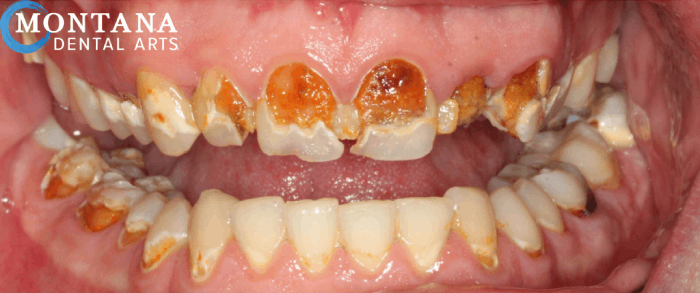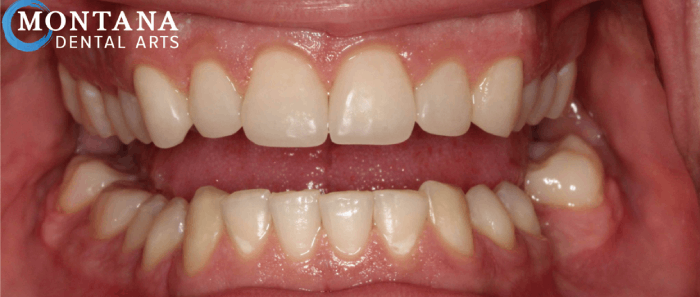Understanding Tooth Decay: Causes, Impacts, and Prevention
Tooth decay, also known as dental caries or cavities, is one of the most common health problems affecting people globally, irrespective of age. It not only causes discomfort but can lead to severe dental and health issues if not addressed timely. At Montana Dental Arts, we provide treatment for dental decay in Missoula, MT. Here, we’ll explore what tooth decay is, the impact it can have on your health, what causes it, and effective ways to prevent it.
What is Tooth Decay?
Tooth decay refers to the damage to a tooth’s surface or enamel. It happens when bacteria in your mouth create acids that attack the enamel. This can lead to a small hole in a tooth, known as a cavity. If untreated, these holes can grow larger and deeper, affecting deeper layers of the tooth, which can result in severe toothache, infection, and even tooth loss.
The Impact of Tooth Decay
The impacts of tooth decay extend beyond just dental pain. They include:
- Pain and Discomfort: As decay progresses, it can cause toothache and sensitivity. In severe cases, it can lead to abscesses, which are painful infections at the root of a tooth or between the gum and a tooth.
- Difficulty Eating: Decay can lead to difficulties in chewing some types of food, particularly if the teeth become painful or sensitive.
- Aesthetic Issues: Visible cavities or the deterioration of teeth can affect one’s confidence and self-esteem.
- Higher Treatment Costs: Without early treatment, tooth decay can require more extensive and expensive procedures, such as root canals or dental crowns.
- Overall Health Problems: There is a proven link between oral health and overall health. For instance, severe decay can lead to infections that might spread to other parts of the body. Poor oral health is also linked to diabetes, heart disease, and other conditions.

Before – Patient present in 2021 for treatment of tooth decay.
Causes of Tooth Decay
Tooth decay is primarily caused by plaque, a sticky film of bacteria that forms on teeth. When you eat or drink foods containing sugars, the bacteria in plaque produce acids that attack tooth enamel. The following factors can increase the risk of developing cavities:
- Poor Oral Hygiene: Not brushing and flossing regularly allows plaque to remain on the teeth and continue producing acids.
- Frequent Snacking and Sipping: Eating or drinking frequently, especially sugary or acidic foods and drinks, gives bacteria more acid-producing fuel.
- Not Getting Enough Fluoride: Fluoride, a mineral that helps prevent cavities and can even reverse the earliest stages of tooth damage, is lacking in some people’s oral care routines.
- Dry Mouth: Saliva helps wash away food particles and neutralize acids produced by bacteria in your mouth. A dry mouth lacks sufficient saliva production, enhancing the risk for tooth decay.
Treatment for Tooth Decay
If you have mild tooth decay, tooth fillings or dental bonding are typically used to repair your teeth. If you have more extensive decay, dental crowns, root canal treatment, or even tooth extraction and replacement may be required to restore your smile.
Modern techniques ensure your comfort throughout the whole process. Local anesthesia, minimal sedation, and moderate IV sedation make treatment much more comfortable. Many of our patients report a long history of problems with tooth decay. After the bacteria causing the decay has been eradicated, many of our patients have few issues at future check-ups. Your dental health is easier to maintain once the bacteria and decay have been managed.

After – Patient in 2023 – 12 months after completion of treatment
Following the development of your custom treatment plan, a cost breakdown for treatment is presented. We accept most insurances and have other payment options available to complete your treatment. If you’re unsure if your dental insurance is accepted or will cover your procedure, our experienced team will help you determine the level of benefit your plan provides. It’s crucial to understand what’s covered, what’s not, and how to maximize your benefits.
How to Prevent Tooth Decay
Preventing tooth decay involves several straightforward steps:
- Maintain Good Oral Hygiene: Brush your teeth at least twice a day with fluoride toothpaste, and floss daily.
- Eat Balanced Diets: Reduce sugary snacks and drinks. Instead, eat nutritious and balanced meals and consider xylitol-containing gum as it can help reduce acids in the mouth.
- Drink Fluoridated Water: Most public water supplies have added fluoride, which has been shown to reduce dental decay significantly.
- Regular Dental Visits: Visit your dentist regularly for professional cleanings and oral exams. This will help catch cavities early before they become severe.
By understanding tooth decay and implementing these preventative measures, you can maintain better oral health and overall well-being. Remember, caring for your teeth is a lifelong commitment that pays off across the board, enhancing your quality of life. If you’re suffering from tooth decay and need treatment in Missoula, MT—schedule your appointment online with our office today!

